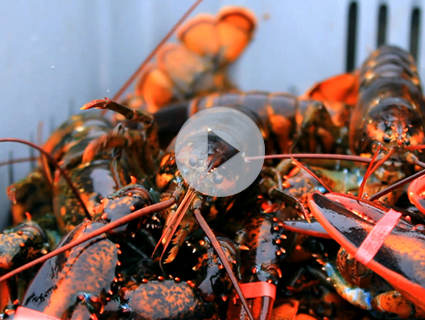
<a href="http://www.shutterstock.com/gallery-97684p1.html?cr=00&pl=edit-00">Claudio Divizia</a> / <a href="http://www.shutterstock.com/editorial?cr=00&pl=edit-00">Shutterstock.com</a>
The following is based on a segment that aired on Bite, the Mother Jones food politics podcast. Scroll to 6:56 in the player below to hear this segment.
What do you remember about what you ate in college? Were your university years a blur of mediocre pizza glistening under heat lamps in the cafeteria? Or was the food at your institute of higher learning actually pretty decent? If it’s the latter, then Malcolm Gladwell has a bone to pick with your alma mater.
Gladwell, a staff writer for the New Yorker and the author of the bestseller Blink, has a new podcast called Revisionist History, and he devoted a recent episode to college food. Specifically, food at two elite small liberal arts colleges: Vassar, in Poughkeepsie, New York, and Bowdoin, in Brunswick, Maine.
In the podcast, Gladwell explains that Vassar and Bowdoin are alike in many ways: Both are small, with only a few thousand students each, and both are academically excellent. But according to Gladwell, they’re different in two very important ways: The first is that Bowdoin’s food is phenomenal—we’re talking gourmet here, with special dinners like a yearly lobster bake. Vassar’s food, on the other hand, is terrible. So bad, Gladwell says, it gives students digestive problems.
The second way that Vassar and Bowdoin are different, according to Gladwell, is that Vassar spends much more money than Bowdoin on financial aid. And here’s the real point of the episode: Gladwell argues that Bowdoin is making an immoral choice by spending its money on fancy food rather than financial aid, and that in doing so, it’s actually making it harder for Catherine Hill, Vassar’s president, to attract top students. Here’s how he puts it:
There’s only one solution. If you’re looking at liberal arts colleges, don’t go to Bowdoin. Don’t let your kids go to Bowdoin. Don’t let your friends go to Bowdoin. Don’t give money to Bowdoin or to any other school that serves amazing food in its dining hall. Because every time you support a school that spends its money on amazing food, every time you cast a vote in favor of eggplant parmesan pancakes and lobster bakes and venison during deer season, you’re making it harder and harder for someone like Catherine Hill to create opportunities for poor kids. Suck it up and go to Vassar. Send a message to the Bowdoins of the world about what really matters.
The episode elicited strong reactions. Bowdoin called it “disingenuous” in a statement. And the Black Lives Matter leader DeRay McKesson, a Bowdoin alum, tweeted:
.@Gladwell, there are many fair critiques of Bowdoin. But saying “the food is good therefore the college isn’t focused on equity” is a sham.
— deray mckesson (@deray) July 15, 2016
I can see McKesson’s point. After all, real social good can come out of a college investing in its dining program, right? For example: Bowdoin buys much of its food from nearby farmers, a practice that benefits the local economy. I contacted Bowdoin, and you know that fancy lobster dinner that Gladwell talked about? Turns out the college has been buying the lobsters from the same local fishermen for thirty years.
Had Gladwell considered that? I wondered, so I called him up.
“Where the lobster comes from, I could care less,” he told me. “That is so beside the point. That episode was intended to point out how the priorities of colleges have been skewed.”
Okay. So let’s put lobster aside for a second. Isn’t there something weird about admitting poor students and deliberately serving them bad food? You bring kids from low-income families to college in hopes that with this great education, they’ll be able to break out of the cycle of poverty—a cycle that includes many problems, one of which is poor-quality, un-nutritious food, which then causes diabetes, heart disease, and all these other big problems. So then they get to this great college, only to be forced to eat more crappy food? Isn’t that just perpetuating the cycle of poverty?
Gladwell wasn’t impressed with that argument either.
“The function of a college is to educate them and to prepare them to climb the social and economic ladder and make the best of their talents once they graduate,” he said. “If in that four year window they live in a crappy dorm and eat crappy food, who cares—if they’re getting an education.”
And never mind the fact that the episode of Gladwell’s podcast was called “Food Fight” and the entire thing was devoted to a discussion of the allegedly gross food at Vassar and fancy food at Bowdoin, it wasn’t actually supposed to be about, well, food.
“You’re focusing on the wrong thing,” he said. “The episode is about how generous are colleges toward low income students, and what does it take for a college to devote resources toward serving the neediest kids in this country.”
But I called up Scott Jaschik, a reporter at Inside Higher Ed, a publication that covers colleges and universities. Jaschik wrote a piece about Gladwell’s podcast. And he found that when it comes to serving needy kids, Bowdoin actually isn’t half bad. In fact, quite the opposite.
“Bowdoin is in fact pretty generous, more generous than almost all colleges in its financial aid,” said Jaschik. Indeed, it’s one of only a handful of schools that are need-blind—meaning they don’t take students’ finances into account when they decided whether or not to admit them—and also commit to paying for their whole college experience with no loans for all four years.
Jaschik also pointed out that there’s a flaw with Gladwell’s argument that better food means less financial aid at Bowdoin. It turns out that Bowdoin’s dining program is self-sustaining. Students pay for their food, and that covers the cost of the program completely. Bowdoin’s food budget doesn’t come out of endowment earnings or tuition funds. “So that is a major problem with the argument that good food is yielding less money for student aid,” said Jaschik.
In general, Jaschik told me, you just can’t say that better food at a college necessarily means less financial aid. “The economics of higher education are very complicated based on all kinds of things, so that’s why the people I talked to were just very hesitant to say it was all the fault of food.”
We’re curious to hear what you think. Is food an important part of the college experience? Or is it a frivolous expense that colleges are frittering away their precious resources on? Leave a comment here, or email us at bite@motherjones.com, tweet at us at @bite_podcast, or find us on Facebook at Mother Jones Food.
















